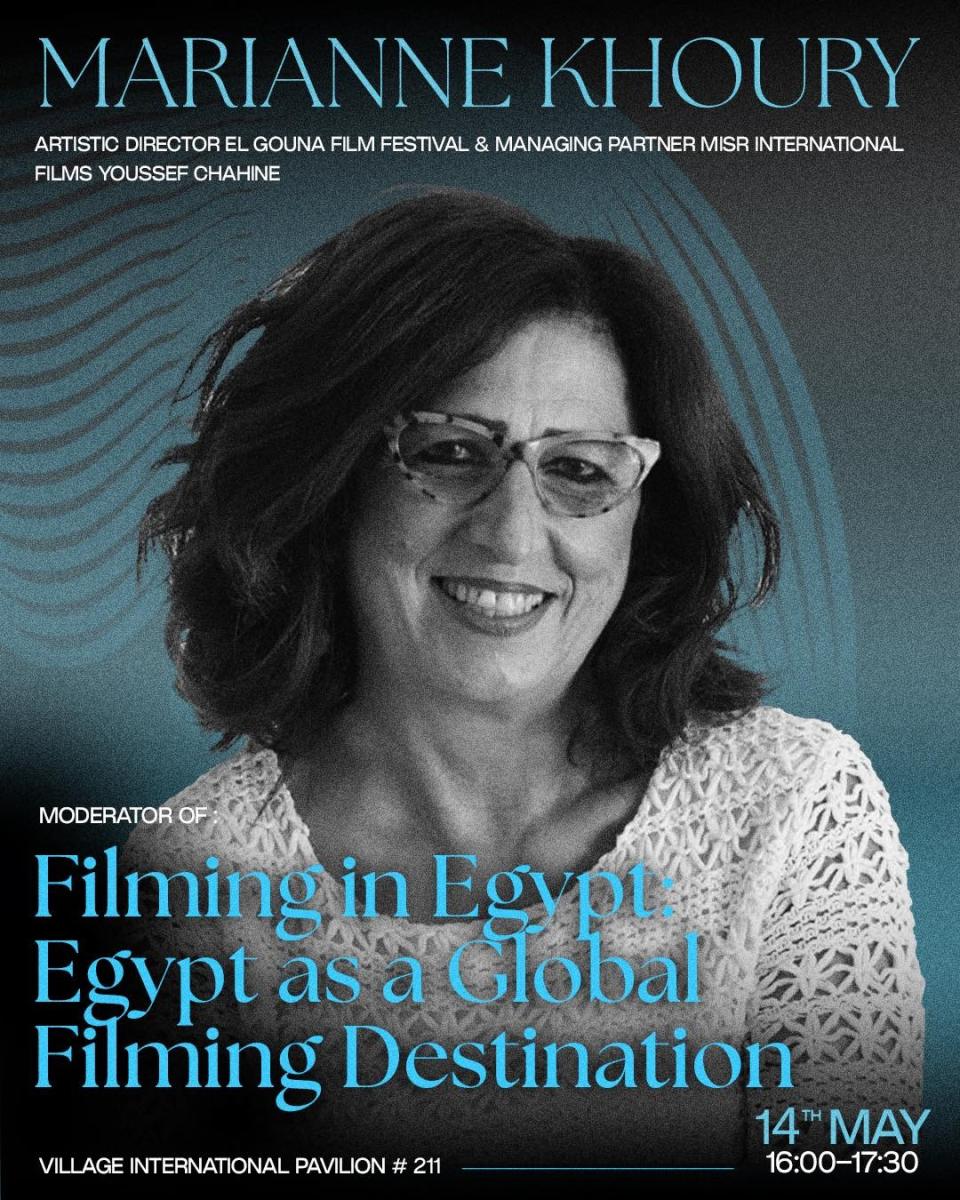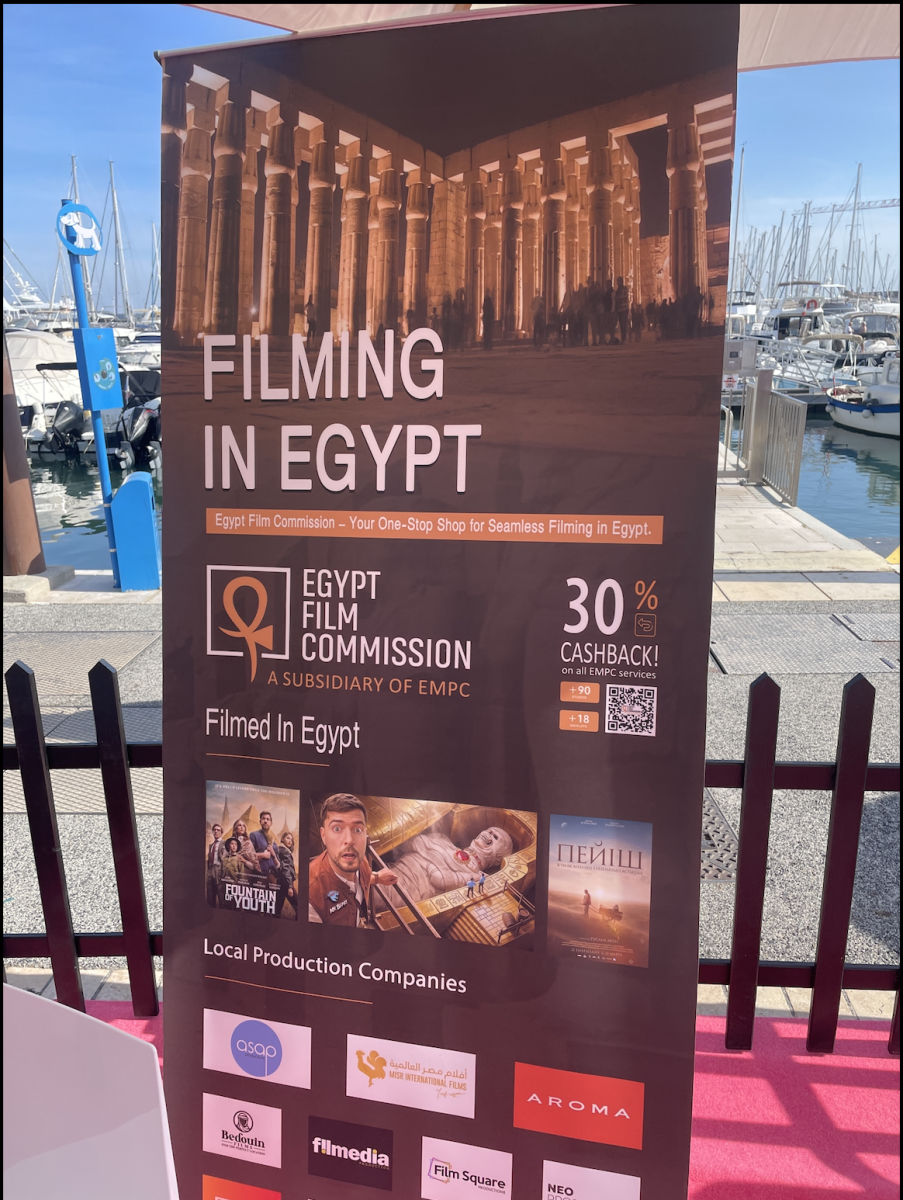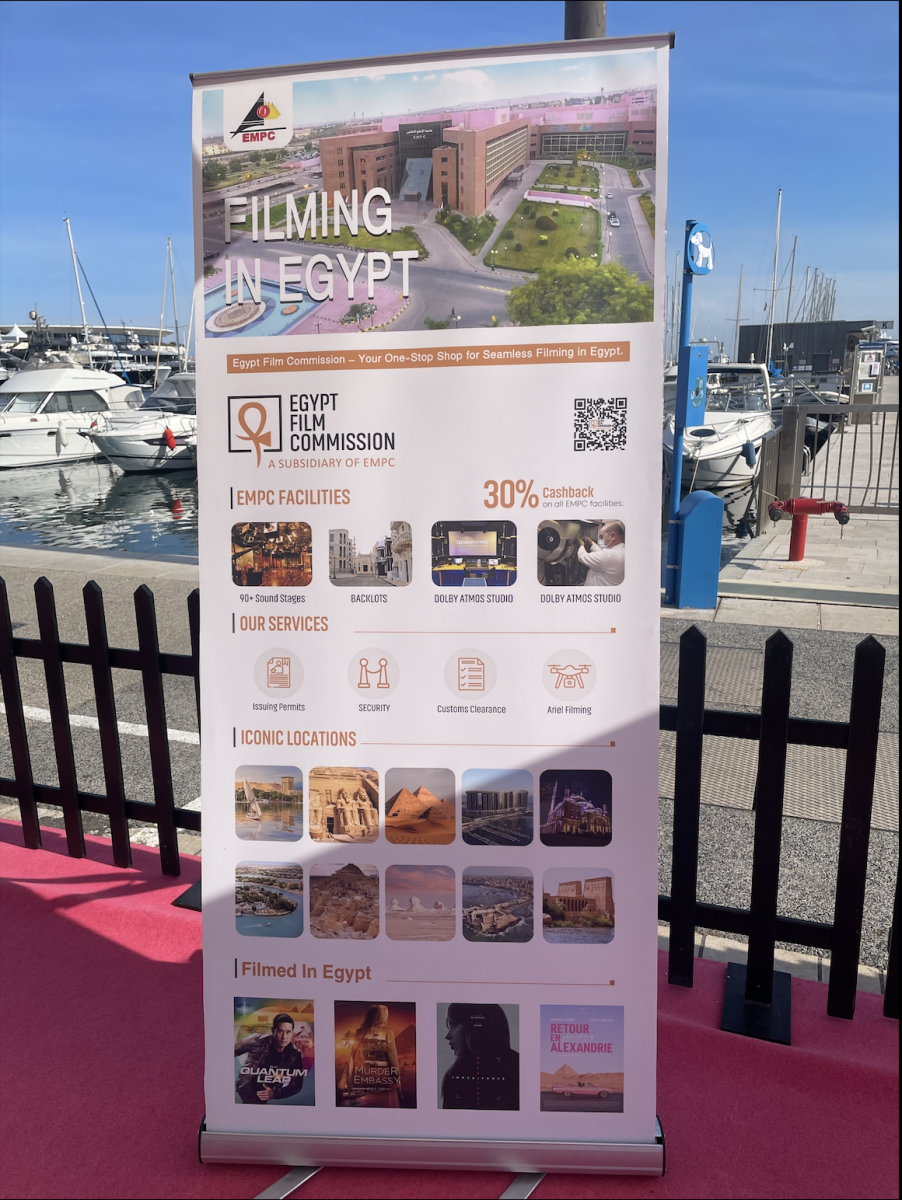Within the Egyptian pavilion installed this year at the International Village of the Cannes Film Film Film Market, a panel entitled Filming in Egypt aroused the interest of the professionals present on the Croisette. Moderate by Egyptian producer and director Marianne Khoury, the meeting made it possible to approach the possibilities, the assets, but also the limits of the filming industry in Egypt today. Through the testimonies of producers who have recently turned on site, and the explanations of institutional representatives, the panel offered a rare light on the ambition of Egypt to become a regional hub for major international productions.
A life -size decor … and a structured government effort
For decades, Egypt has attracted foreign productions, fascinated by its mythical landscapes, its world famous monuments, and an immediately recognizable visual culture. The country has welcomed films in the past such as Death on the Nile,, Fortunes of war,, Malcolm X or Transformerswho all took advantage of a strong visual anchoring and a unique historical wealth. But beyond the image, the challenge is now to convince producers that turning in Egypt is an option not only attractive, but also competitive and well supervised.
Ahmed Badawy, Executive Director of Egyptian Film Commission, recalled that the organization, created in 2019, had already facilitated the implementation of more than 70 projects focused on the territory. Above all, he insisted on new cooperation between different ministries and public institutions, which have been encouraged to work together to simplify administrative procedures, improve requests for processing requests and offer a reassuring framework to foreign teams. According to him, Egypt does not only want to seduce with the beauty of its landscapes, but also by the fluidity of its processes, and the quality of its technical and human infrastructure.
The shooting experience told by an American producer
Among the significant interventions, that of Philippa Naughten, producer of the American film Fountain of Youthset the tone. Coming to shoot in Egypt for the first time, she shared her surprise in front of the quality of the natural sets and the competitiveness of the costs. According to her, experience has exceeded expectations, both artistic and logistically. It nevertheless pointed out that, compared to Morocco – which remains a reference in terms of international filming – Egypt must still improve the fluidity of administrative procedures, a point on which all the stakeholders insisted.
What makes the difference, according to her, is the role of the Egyptian commission of the film, which plays an engine role in supporting productions and works in close collaboration with the various ministries and administrations of the country, to simplify the procedures and offer a single window to the foreign teams. The deadlines for obtaining filming authorizations were thus reduced to fourteen days, but only for international productions, as Marianne Khoury said. This point remains problematic for local producers, who do not yet have access to the same facilities.
Human and professional experience
Philippa Naughten also mentioned the shooting in Egypt from a more personal angle:“On the human level, it was a very good experience. We had to adapt to another work culture, but also to unforeseen events. It was sometimes necessary to improvise, especially when certain equipment lacked. But each time, the Egyptian teams have been creative to find solutions. »»
She said she had filmed during Ramadan, an additional challenge to manage for a foreign production, but also a wealth in terms of cultural discovery. “Even if we were working 12 hours a day as in the United States, the atmosphere was different. We had to understand the local rhythm, and it was enriching.
Security, infrastructure and incentive taxation
In addition to the artistic and heritage interest of Egyptian sites, the panel highlighted other weight arguments, starting with safety and logistical stability. The Commission stressed that the complete mapping of filming places is now available online, accompanied by a detailed presentation of infrastructure, studios, local technicians and institutional support.
But it is also the financial asset that arouses the interest of producers. Egypt offers a reimbursement of 30 % of taxes, a measure already in force and which constitutes an important lever in the regional competition. The country intends to go further by setting up new tax incentives and co -production agreements. As Marianne Khoury recalled, this policy aims to make Egypt not only a spectacular decor, but also a structured and reliable production center.
The case Mr. Beast: the impact of a viral shooting
Another example cited during the panel: that of Mr. Beast, famous American Youtuber whose filming in Egypt has had a worldwide impact. This project has not only generated immediate tourist benefits, it also allowed millions of spectators, especially young, to discover what Egypt can offer in terms of landscapes, heritage and narrative potential.
According to the stakeholders, the training effect of this kind of project is considerable, because it changes the perception of Egypt to content creators and platforms. This is a major issue for the film Commission, which hopes to capitalize on this dynamic to diversify the types of productions welcomed: cinema, series, advertising, web content.
Film Iraq and the United States … in Egypt
Another striking testimony of the panel: that of Tamer Mortada, founder of Aroma Studio Groups and executive producer of the film Debriefing the Presidentan international feature film whose scenes supposed to take place in Iraq and the United States have actually been fully shot in Egypt. The film was also a post-product on site. “” This type of project shows that Egypt can replace other filming places in very diverse contexts, while ensuring visual and technical consistency. »»
This testimony reinforces the idea that the country can offer much more than a simple decor: local expertise, a complete production chain, and a capacity to adapt to international shooting requirements.
Stakeholders committed for sustainable revival
In addition to Marianne Khoury, Ahmed Badawy, Philippa Naughten and Tamer Mortada, the panel also brought together Amin El Masri and Xavier Dolleans, both active in the development of projects between Europe and the Middle East. All the speakers expressed a common desire: that Egypt is no longer perceived only as a spectacular decor, but as a real co -production partner, capable of assuming large -scale projects, while respecting international standards.
This panel Filming in Egypt perfectly fulfilled its mission: to clarify the real possibilities offered by the country, to recall the recent efforts to fluidify the processes, and to give the floor to those who have already turned there, successfully. A demonstration by the example which could well convince other teams to put their cameras on the edge of the Nile.
Neïla Driss












